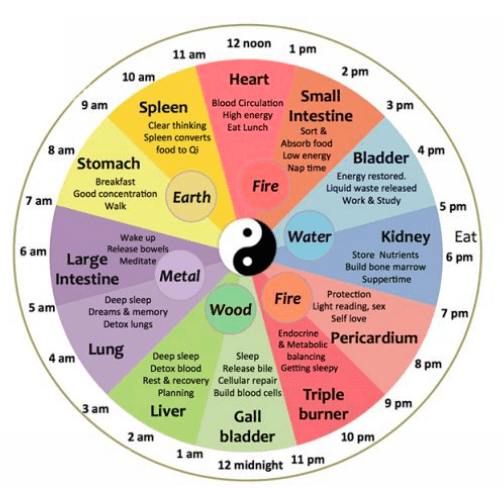Late Summer: A Season of Balance and Grounding
- Aug 20, 2025
- 4 min read
Updated: Sep 27, 2025
Late Summer: Embracing the Earth Element in Traditional Chinese Medicine
Late Summer spans from mid-August through September 22nd. It represents a transitional period in Traditional Chinese Medicine (TCM). This season is considered a fifth season, where we shift from the expansive, outward energy of summer (Yang) to the more inward, reflective energy of autumn and winter (Yin).
The Earth Element: Spleen and Stomach
Late Summer corresponds to the Earth Element, governing the Spleen and Stomach systems. These organs thrive on routine and regularity, helping us feel centered and grounded. The Earth Element embodies nurturing, motherly energy—giving, supporting, and caring. However, individuals with strong Earth energy often excel at giving to others while struggling to replenish their own reserves.

According to TCM, one of the main functions of the Spleen is to transform and transport nutrients from food and fluids. Apart from digestion, the Spleen in TCM is responsible for many other functions:
Produce Blood: The Spleen generates blood from food and drink. Lethargy could indicate a Spleen deficiency.
Control Blood Vessels: It keeps blood from leaking. If you bruise easily, it may suggest a weak Spleen.
Organ Support: The Spleen helps keep your organs “upright” and in their proper place. Prolapse is thought to stem from a Spleen disturbance.
Clear Thinking: It houses clear thinking and intellect. An imbalanced Spleen may lead to muddled thoughts.
Muscle Control: Weak muscles and atrophy can reflect a Spleen imbalance.
TCM Clock
In TCM, each organ has its strongest time of day. For the Earth Element, this is in the morning. The Stomach is strongest between 7:00 and 9:00 AM, while the Spleen is strongest between 9:00 and 11:00 AM. Eating your largest meal during these times optimizes digestion. Your body can absorb the most Qi from food, transforming it into energy.
TCM theory recommends abstaining from eating for at least two hours before bedtime. This allows food to digest before sleep, giving your digestive organs a crucial break overnight. The Gallbladder and Liver (Wood element) are strongest from 11 PM to 1 AM (Gallbladder) and from 1 AM to 3 AM (Liver). During these hours, deep sleep is essential. If distracted by digestion, the Wood element may struggle to perform its functions, leading to sleep disturbances and irritability.
That is why TCM recommends eating during daylight and resting at night. Ideally, we should restrict eating to daylight hours. Many people ask about intermittent fasting, where meals are consumed later in the day, skipping breakfast. In TCM, this practice is discouraged. It wastes your strongest digestive energy and slows your system down. It is best to eat regularly, starting when digestive energy is strongest and finishing before the Wood element becomes active.

Signs Your Spleen Needs Support
Watch for these common symptoms of Spleen imbalance:
Morning fatigue and difficulty waking up
Poor morning appetite or nausea
Morning digestive urgency or diarrhoea
Undigested food in stool
Unexplained weight gain and sluggishness
Loose or mucusy bowels
Chronic bloating and water retention
Sugar cravings
Easy bruising
Persistent worry, overthinking, or catastrophizing
Understanding Dampness
Poor energy of the Earth can lead to what we call “Dampness.” This condition manifests as thicker fluids that block channels and make us feel heavy and sluggish. Symptoms of Dampness include fatigue, foggy heads, low appetite, bloating, loose mucusy stools, UTIs, and yeast infections. Dampness can arise from poor function of the Stomach and Spleen, a Damp-forming diet, or external Dampness, which can be prevalent in the UK during autumn months.
Remedies for Damp
Limit or Exclude Completely:
Greasy, deep-fried, spicy foods
Processed sugary foods
Excessive raw foods and dairy products
Cold foods and icy beverages
Tropical fruits (bananas, oranges)
Peanuts, considered congealing
Include Foods Like:
Grains: Corn, barley, basmati rice
Vegetables: Alfalfa sprouts, button mushrooms, capers, corn, pumpkin, radish, turnip
Fruits: Papaya, lemon, umeboshi plum
Beans: Aduki, lentils
Fish: Eel, tuna
Herbs & Spices: Aniseed, garlic, horseradish, marjoram, nettle, parsley, white pepper
Beverages: Green tea, raspberry leaf tea, jasmine tea, orange peel tea
Other advice includes regular daily movement and stress management.
Nourishing Foods for Late Summer
Late Summer is the harvest time when naturally sweet foods are abundant. The sweet flavour strengthens digestion when it comes from whole foods. Here are some naturally sweet fruits and vegetables to enjoy:
Peaches, plums
Apples, pears
Cherries
Grapes and any berries
Pumpkin
Long-cooked onions
Carrots and parsnips
Mushrooms
Tomatoes
Winter squash varieties
Sweet potatoes and yams
Yellow and orange bell peppers
Beetroot, celery root
Corn and millet
Meal Guidelines
Choose well-cooked, easily digestible foods.
Eat meals at regular times.
Include small amounts of fermented foods.
Focus on warming, grounding preparations.
Some Ideas for Late Summer Meals
Breakfast:
Warm porridge with cinnamon, honey, nuts, seeds, and berries
Warming herbal teas such as fresh ginger tea, fennel tea, and orange peel tea
Cooling drinks if the weather is still hot, like mint water or tea, and lemon/lime and cucumber water
Lunch:
Warming soups featuring butternut squash, sweet potato, carrot, or pumpkin
Whole grain pita or bread
Lightly cooked vegetables
Dinner:
Hearty stews, stir-fries, or rice dishes with beef, lots of root vegetables, squash, leafy greens, and fresh ginger
Snacks:
Seeds and nuts in moderation
Stewed fruit with warming spices like cinnamon
Oatmeal cookies made with natural sweeteners
Enjoy that ripe peach, take a mindful walk, and if your body feels out of balance, consider seeking an acupuncture session. Your Earth element will thank you!
Sending lots of nurturing energy your way. 😊
Kate


























Comments